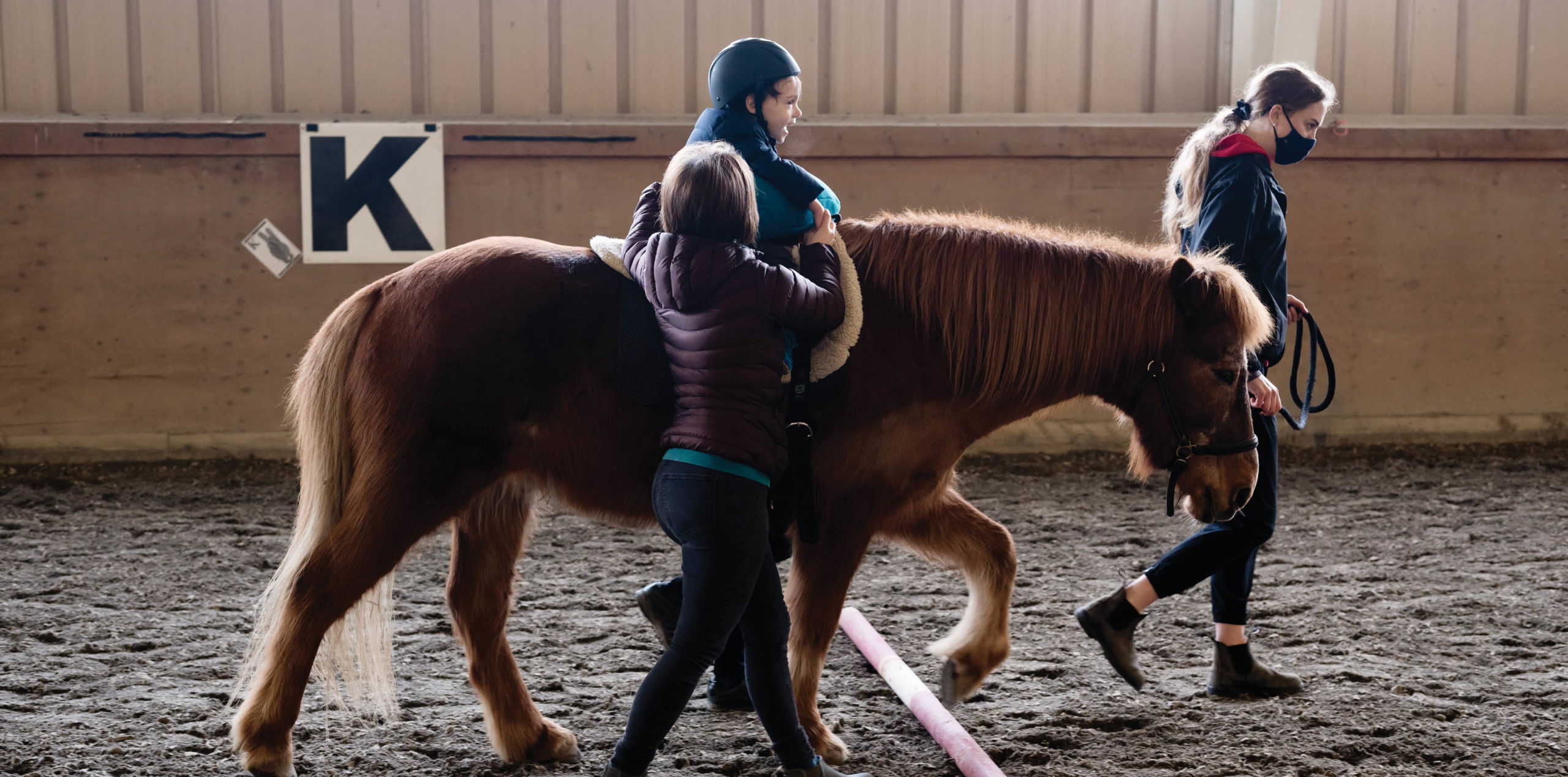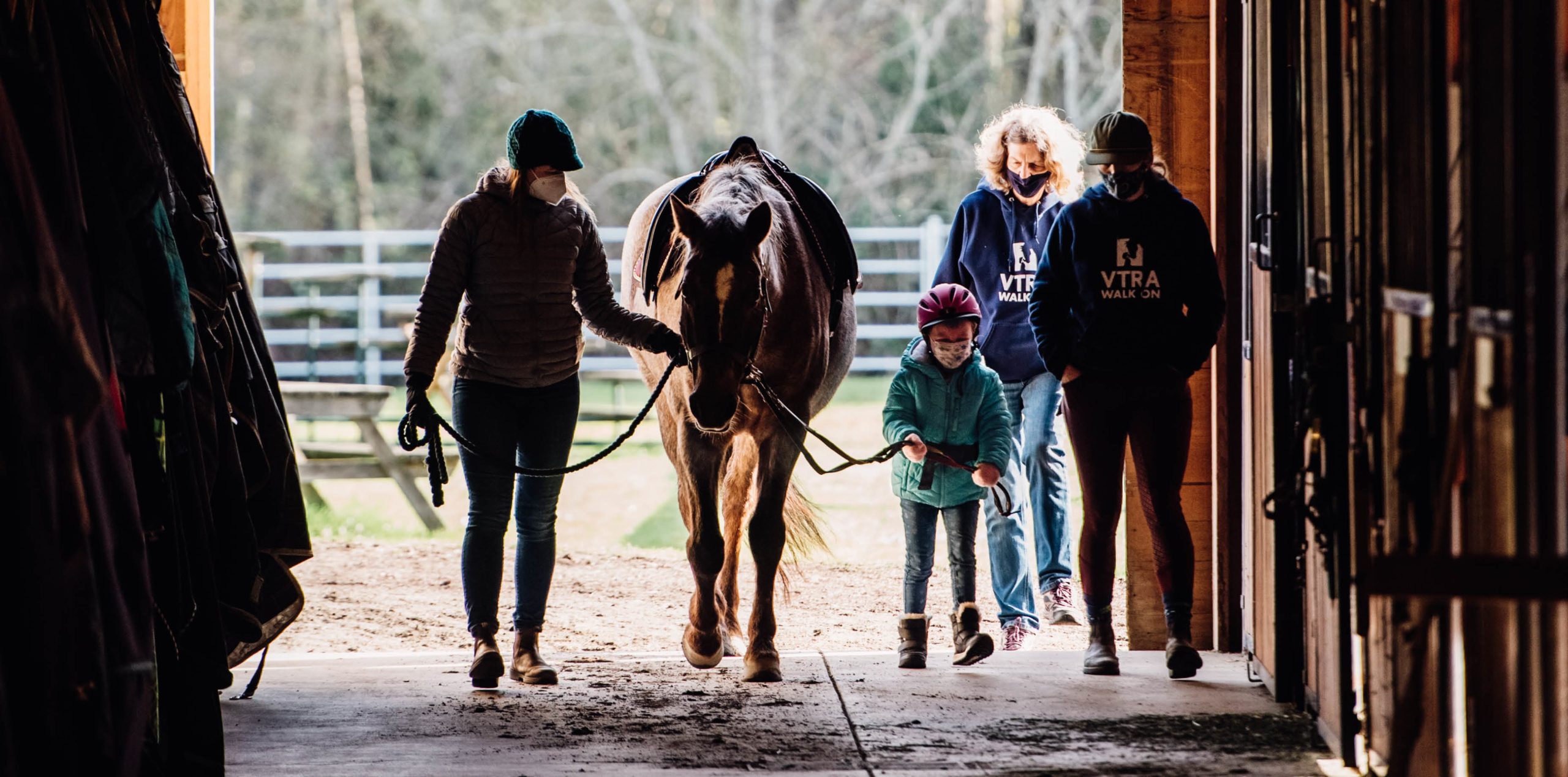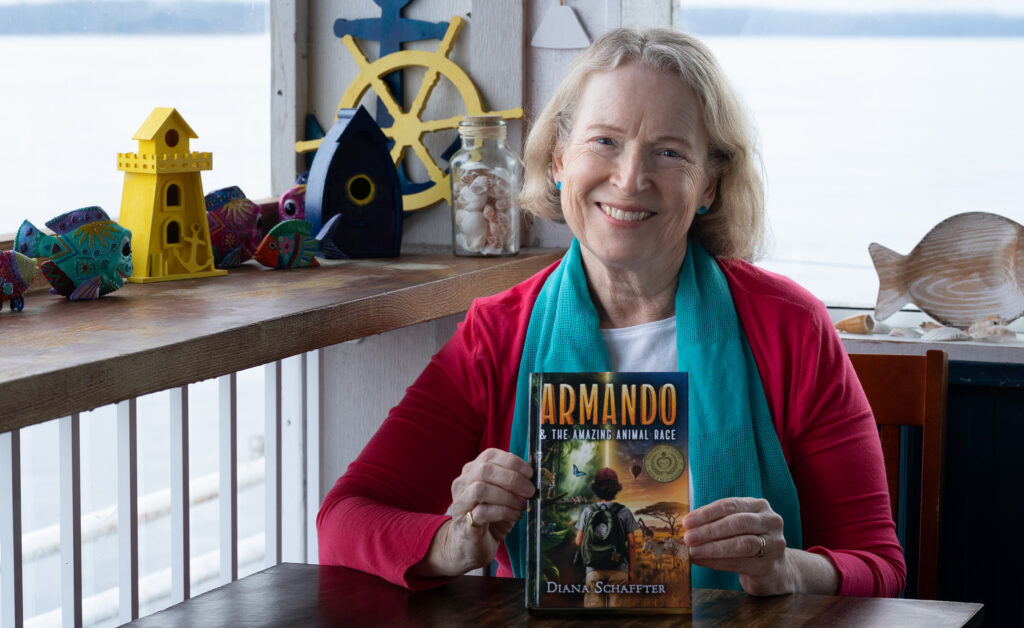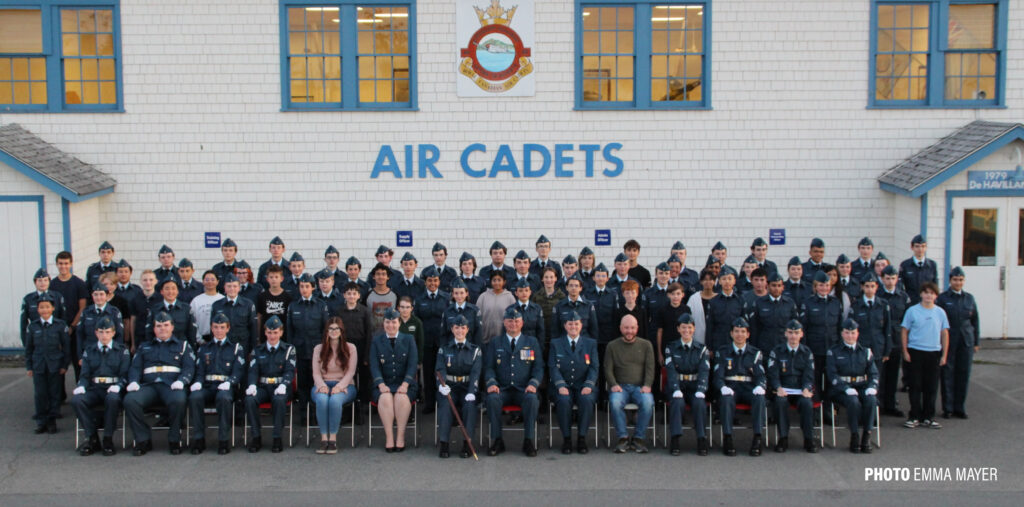by Cassidy Nunn | photos by Nunn Other Photography –
Twelve beautiful horses and ponies call a farm on the Saanich Peninsula home – they vary in age, size, colour and personality, but they all share the very important title of therapy horse. These equines are an integral part of the Victoria Therapeutic Riding Association (VTRA), a non-profit charitable organization that has been around since 1982. The VTRA aims to provide a positive horse experience to children and adults with diverse abilities in the Greater Victoria region, whether that be through therapeutic riding or in non-mounted time spent with horses in the stable. The longstanding organization offers a wide variety of programs, from adaptive riding and driving; to stable management; summer, kids and women’s camps; and a new seniors’ program.
“People really benefit from this welcoming and inclusive place,” says Michael Waters, who’s been the Executive Director of the VTRA for the past two years and has been involved with the organization for five years. Participants are often “surprised by how much connection and the sense of belonging they feel,” he says, adding that it’s “an affordable, safe place to make that connection.” Michael sees daily the joy that horses and this place bring not just to the participants, but the staff and dedicated volunteers as well.
The VTRA offers three core programs: adaptive riding, adaptive driving and stable management. All the riding instructors are certified by either the Canadian Therapeutic Riding Association (CanTRA) or the Professional Association of Therapeutic Horsemanship International (PATH) and they often work together with physiotherapists, occupational therapists, speech therapists etc. to provide the best experience for each participant. The program serves those with a wide array of diverse abilities and diagnoses, such as (but not limited to) anxiety, PTSD, down syndrome, depression, ADHD, cerebral palsy, and acquired brain injuries.
Alongside the seven staff members and a volunteer board, the help of 200 to 300 volunteers keeps the VTRA operational. Fundraising and grants allow the programs to run at a subsidized rate for participants and in-house subsidies can also be applied for in order to cover the full cost for the participant. The pandemic has unfortunately reduced the number of volunteers, but there are enough to keep the current programs running. For those looking to explore volunteer opportunities with the VTRA, it’s best to head to their website to see the variety of volunteer roles and fill out the online application form. Volunteers are needed in a variety of roles, from the programs, to sitting on the board, to helping in the office, the barn or the on-site tack store.
Adaptive cart driving has been “a really neat program for people who may not be well suited for riding,” says Michael. Participants will learn how to drive the horse and cart which requires learning to “work with the horse in a different way than riding.” It’s the only adaptive driving program offered on the Island.
Last year the VTRA tested out a new stable management program specifically for seniors, which Michael says was so successful they’ve planned to offer it again this year. Seniors visited the farm for a one-day stable management program where they’d go over grooming, health, nutrition, horse anatomy and physiology, and the various breeds. For many seniors, it provided them a chance to reconnect with horses and for others the time to learn more about horses and spend some time in the barn environment.
Michael says they like to have a variety of different breeds and sizes of horses “to accommodate the different demographics we have.” Most of the horses were purchased and are owned by the VTRA, while others have been made available to the program on a free lease. Horses are sometimes donated to the VTRA, but they still must pass an inspection and trial period to ensure they’ll be a good fit for the programs. “It’s a dynamic environment for a horse,” says Michael. They “have to be solid in being handled by different people and to be okay being used independently and in a group.” If they’re accepted into the program, the horses are provided with a wonderful home and lots of attention. “It’s a really lovely place for them to be – they get excellent farrier and vet care.” The horses are also provided with massages and chiropractic care as needed, and receive several weeks of well-earned vacation time in a field each summer where they’re able to run as a herd.
During the pandemic the programs have been able to continue to run with safety protocols in place and Michael says it’s become even more apparent just how special this place, the horses and the people involved are. Looking forward, Michael and his team aim to continue to diversify the programs even further so even more people have the opportunity to experience the joy the connection with horses can offer.





